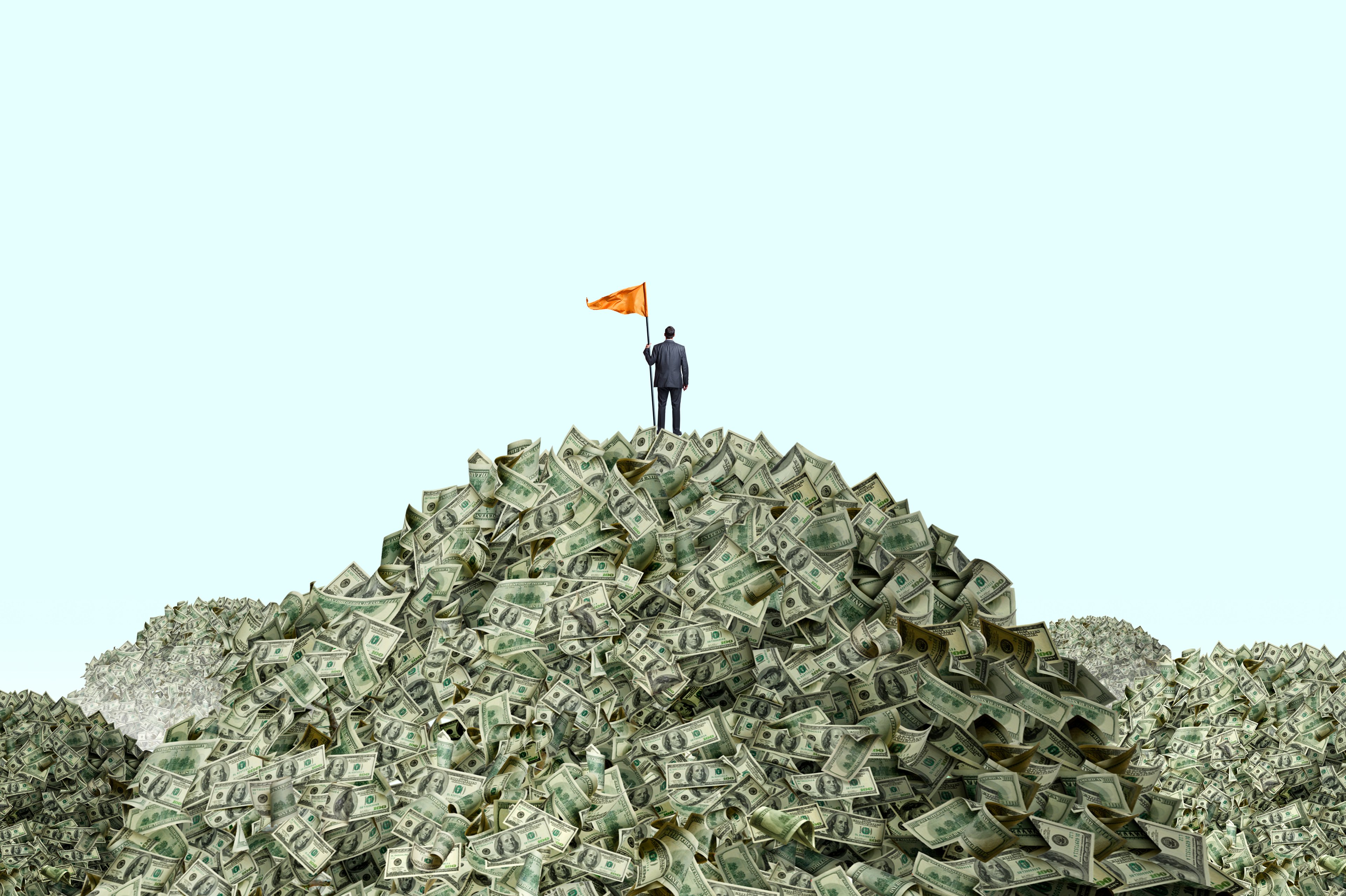Summer is officially less than two weeks away, and that can mean only one thing: You're already paying way too much at the pump to fuel up your vehicle.
Memorial Day is typically when gas prices peak every year, but consumers have sort of dodged a bullet in each of the past four years, with gas prices vacillating within a pretty consistent $1-per-gallon range since 2011. However, tell that to the middle-class and lower-income consumer that was paying $0.40 less per gallon on average just four months ago. In a typical month where this same consumer fills their car up four times, they're spending about $20-$25 extra in fuel costs compared to February.
Weekly Retail Gas Prices, April 1993-June 2014, Source: Energy Information Administration.
The gas price conundrum
Making matters even more complicated there's no universal price that consumers pay for gas. Gulf Coast transport terminals as well as central U.S. and East Coast refineries often keep prices lower than the national average because of their fortunate location. However, those of us who live on the West Coast are forced to pay a premium for gas since it's so costly to ship fuel assets out West. And of course, let's not forget that gas stations themselves are competing with one another for consumers' businesses, resulting in differing promotions, brand images, and, yes ... different prices.
But have you ever sat back and wondered which gas station is truly America's favorite? I know I've often wondered this considering the high level of competition inherent within the sector, and believe that the gas station able to prove itself as America's favorite could be worth a closer look as an intriguing investment opportunity.
Thankfully, we don't have to guess which gas station is America's favorite because research firm Market Force did the hard work for us last June. In its study, which utilized more than 7,600 participants and looked at 53 different gas station operators, Market Force examined not only which gas station was visited most by consumers, but what factors led consumers to choose gas stations in the first place. In addition, Market Force adjusted its rankings to account for the fact that some gas stations absolutely litter the country, while others are confined to specific regions. This way Market Force believed it'd get a more accurate representation of customer gas station satisfaction.
This is America's favorite gas station
Before I reveal which gas station is favored by consumers, would you care to venture a guess as to which company you think it might be?
Got your answer?

For those of you who went with the national providers like Chevron and Royal Dutch Shell (NYSE: RDS-A), I praise your effort, but your horse didn't even place among the top 11 performers. In fact, only 49% of the approximately 7,600 respondents even went to a national chain gas station. As Market Force notes, Shell actually amassed the highest number of votes based on its study, but it also possesses more than 10,000 gas stations nationwide. When factoring these votes into the number of stations it simply didn't crack the top 20%. Although, Chevron and Shell did get honorable mentions as the No. 1 and No. 3 brands when it comes to gas station brand reputation.
If you went with a grocer such as Kroger (KR +0.31%), then you're getting a bit warmer. Kroger, the parent company behind Fred Meyer, QFC, Ralphs, and its self-named Kroger grocery stores, has worked diligently to install gas stations in the parking lots of its grocery stores in order to improve the convenience factor for consumers and hopefully help drive more traffic inside its stores. Kroger was good enough to take the No. 6 spot on Market Force's rankings, but that still puts it a long ways from first.
If you went completely off the cuff and guessed Costco Wholesale (COST +2.95%), then you either have a keen foresight that could come in handy with this week's PowerBall lottery drawing, or you could be among its 71.2 million cardholders that has potentially taken advantage of its fuel stations. According to Market Force's survey, Costco absolutely cleaned up and was a runaway selection for America's favorite place to fuel up.
Graph by author. Data Source: Market Forces.
As you can see, the number of votes Costco received based on its total U.S. locations nearly doubled up its next closest peer which was Sam's Club, the warehouse owned by Wal-Mart (WMT +4.14%). On a side note, Wal-Mart had to crawl and scrape its way to simply reach the No. 10 spot on Market Force's list.
Why America flocks to Costco to get gas
Now that we know Costco is America's favorite gas station (by a mile!) based on Market Force's survey, let's take a closer look at the "Why?" aspect behind its study.

Source: theSuperStar, Flickr.
Specifically, Market Force looked at 14 different factors that could influence a consumer to visits a gas station. These included convenience of location, fuel prices, brand reputation, fuel quality, ease of entry and exit, and car wash promotions, just to name a few. While I would have personally though that price would be the end-all king of determining factors that drives consumers to a particular gas station, Market Force's survey showed that having a convenient location slightly trumped cheaper fuel prices as the biggest reason for choosing a gas station.
For Costco, both are actually strong driving factors, with Costco members receiving a discount on their fill-up that's often well below the national chains within the area. Although Costco didn't place in the top five when it comes to convenience (the top honor in this category went to Casey's General Stores), it's difficult for Costco's fuel stations to be inconvenient, considering they're attached at the hip to it warehouses, making its stores a one-stop shop for consumers.

Source: Adam Keys, Flickr.
If you're wondering why grocery chains have started installing gas stations next to their stores, look no further than Costco, which provided the model that drove customer traffic to its warehouses and kept them there longer. The reason warehouses like Costco and Wal-Mart have remained so successful is their ability to carry such a diverse array of products, including in many cases the convenience of being able to fuel your vehicle after you shop. Essentially, the longer these two companies can keep you in their stores or near their stores at the fuel pump, the more likely you are to buy discretionary items which provide the real earnings bump for these retailers.
But where Costco has been able to pull away from Wal-Mart in recent years is its ability to target a more affluent audience. By charging for its memberships and promising savings to consumers who buy in bulk, it's been able to sway a consumer group that's less affected by cyclical economic downswings, and which has an affinity to spend, spend, and spend some more!
Overall, Costco was the top-ranked company in terms of fuel prices, it ranked second in terms of cleanliness and the feeling of safety by consumers, third with regard to its friendly fuel assistants, fourth with regard to fuel promotions, and fifth in terms of curb appeal, out of 53 separate gas station brands.

Source: Ines Hegedus-Garcia, Flickr.
Yet one factor that goes unmentioned in Market Force's study may prove to be one of the biggest separating factors for Costco relative to its competition: namely, its intangibles. Price is certainly a reason that consumers decide whether to shop with a particular company, but establishing an emotional attachment with the brand is considerably more important to creating customers for the long term. I suspect Costco does a particularly good job of this given its well-known reputation as a great place to work.
For example, long before the implementation of the Affordable Care Act, Costco was offering health insurance benefits to full- and part-time employees, as well as their spouses! When the ACA was passed into law Costco viewed it not as a crutch as some businesses had, but as a complement to its existing health plans. In response, Costco formed an alliance with Aetna to offer individual insurance plans known as Costco Personal Health Insurance, which wound up pricing well below the average premium price found on state and federally run exchanges. It's these intangible factors that place Costco in good light with consumers and which could be a large unmentioned factor in Market Force's report, which propelled it to the top spot.
Considering America's overwhelming obsession with Costco's gas stations, perhaps its time you considered pumping this retail outperformer into your own portfolio.










